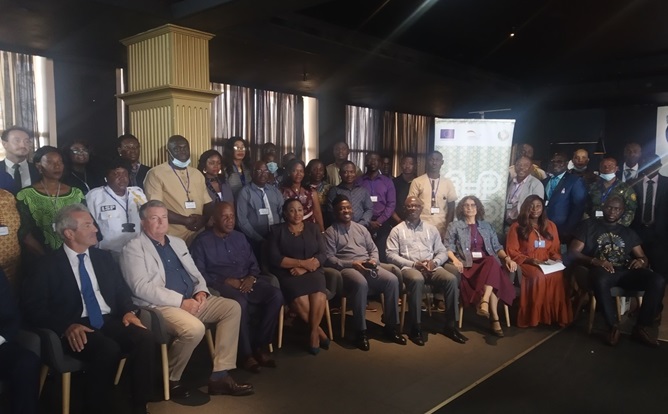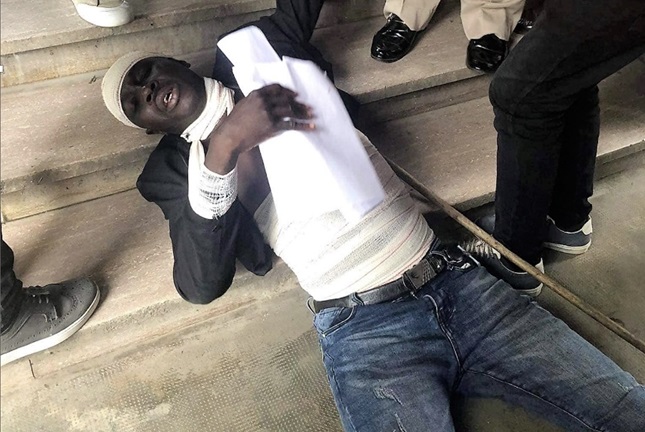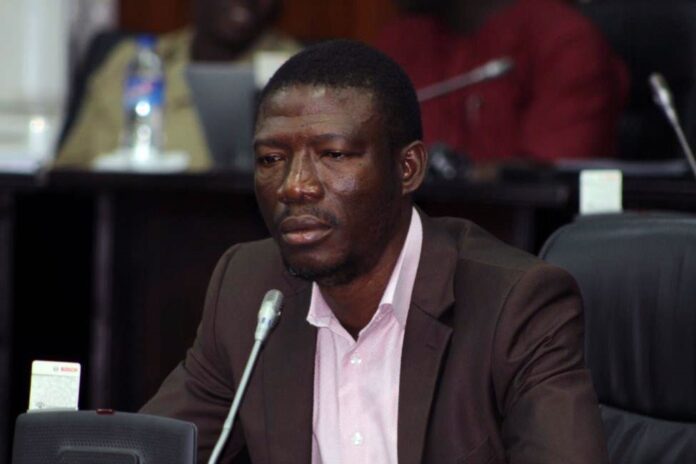LIBERIA – In an effort to build the capacity of stakeholders and institutions in the security sector and relevant oversight territories within ECOWAS member states, the sub-regional body has begun a four-day Security Sector Reform and Governance (SSRG) training workshop in Monrovia.
The ongoing phase of the ECOWAS SSRG training forum, which runs from August 9-12, is targeting Liberia, Nigeria, and Niger.
Speaking at the start of the workshop, ECOWAS Resident Representative to Liberia, Josephine Nkrumah called for the ECOWAS SSRG framework to be implemented.
Ambassador Nkrumah said part of the framework is to support and promote regional peace including security and stability which ECOWAS member states must prioritize.
According to the ECOWAS envoy, the framework aims to complement nationally-led initiatives and promote regional security coordination and cooperation so as to effectively tackle new and emerging security challenges.
She pointed out that the framework is not in any way intended to replace the National Security Strategy, or National SSR Strategy, or nationally-led initiatives which seek to promote governance and reform of the security sector. Rather, it seeks to complement these efforts.
“I must reiterate the objectives of the ECOWAS SSRG Policy Framework which are to promote common security standards in the region, complement nationally-led initiatives, and promote regional security coordination and cooperation so as to effectively tackle new and emerging security challenges. It is not intended to replace the National Security Strategy, or National SSR Strategy, or nationally-led initiatives which seek to promote governance and reform of the security sector. Rather, it seeks to complement these efforts,” said the ECOWAS diplomat.
She indicated that the SSRG is a vital link in the ECOWAS regional security umbrella, noting that the unique value of the SSRG Policy Framework lies in its comprehensive approach to “connected security” in the region.
“This means that improving the efficiency, effectiveness, accountability, and responsiveness of security service provision, management and oversight will have a domino effect of also enhancing national and regional efforts in conflict prevention, preventing and countering terrorism and violent extremism, improving maritime security governance, combating transnational organized crime, as well as controlling small arms and light weapons proliferation, etc,” added Amb. Nkrumah.
Also speaking, Acting Foreign Minister Ambassador Jarjar M. Kamara stressed the need for the Region to invest more in early warning mechanisms and enhance cordial relations based on friendship and cooperation.
He called on member states to double up on integration, be it in economics or politics, or both.
“It will interest you to know that the major achievement of ECOWAS is the consolidation of peace and security in conflict-affected countries of our sub-region. Politics was not envisaged 47 years ago when ECOWAS was founded. But since the famous deployment of ECOMOG on Liberian soil on August 23, 1990, the organization has grown into a formidable and potent regional body that is respected in terms of achievements. Let us continue to build on this success,” the Foreign Ministry official asserted.
The European Union Ambassador to Liberia, Laurent Delahousse, stated that the factor of regional integration is a tremendous element in the world.
Ambassador Delahousse maintained that through integration countries of the world work together in achieving a lot, especially to combat Jihadist threats across the world.
He said the ECOWAS Security Sector Reform and Governance Policy is one that focuses on joining efforts to bring about accomplishments, which the EU is highly supportive of.
“The European Union is putting over 16 million United States Dollars together with addition from the German Government to ensure member states are effective in carrying out the ECOWAS SSRG framework.







